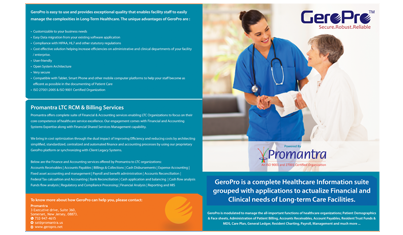Demystifying Medicare & Medicaid Reimbursement

Medicare and Medicaid reimbursement serves as the financial backbone for Skilled Nursing Facilities (SNFs). However, the process remains complex and challenging to navigate. With regulatory requirements, shifting payment models, and evolving compliance rules, SNFs must stay informed to maximize reimbursements while maintaining financial stability. This guide provides an in-depth look at how Medicare and Medicaid reimbursement works for SNFs, common pitfalls, case studies, and best practices to optimize payouts.
1. Understanding Medicare & Medicaid Coverage for SNFs
1.1 Medicare Coverage in SNFs
Medicare covers short-term skilled nursing care for eligible beneficiaries who meet specific conditions. Coverage is divided into:
- Medicare Part A (Hospital Insurance): Covers up to 100 days of SNF care per benefit period after a qualifying three-day inpatient hospital stay.
- Medicare Part B (Medical Insurance): Covers certain therapy services and medical equipment outside of the Part A stay.
- Medicare Advantage (Part C): Private plans that may offer different reimbursement structures compared to traditional Medicare.
Key Reimbursement Factors:
- Patient-Driven Payment Model (PDPM): SNFs are reimbursed based on patient condition rather than therapy volume.
- Daily Rate Structure: Medicare pays for skilled nursing services, therapy, and medications based on PDPM categories.
1.2 Medicaid Coverage in SNFs
Medicaid covers long-term care for eligible low-income individuals. Unlike Medicare, Medicaid has no fixed time limit on SNF stays, but reimbursement rates vary by state.Key Reimbursement Factors:
- Per Diem Rate: Medicaid pays SNFs a daily rate based on patient acuity.
- Case Mix Index (CMI): Some states use a CMI-adjusted rate to determine payment based on the level of care required.
- State-Specific Rules: Medicaid reimbursement varies widely across states, requiring SNFs to stay updated on state-specific policies.
2. Common Reimbursement Challenges & Pitfalls
2.1 Billing & Coding Errors
Incorrect PDPM coding, missing documentation, or outdated patient assessments can lead to denials and delayed reimbursements.
Case Study: A Texas SNF lost $1.2 million in denied Medicare claims after an audit revealed improper documentation of therapy services.
Solution: Regular internal audits, staff training, and automated billing systems can help reduce errors.
2.2 Delayed or Denied Claims
CMS and state Medicaid agencies frequently reject claims due to missing information, prior authorization issues, or lack of medical necessity documentation.
Example: Florida SNF had 30% of Medicaid claims rejected due to incorrect resident assessments.
Solution: Implement real-time claims tracking, verify prior authorization requirements, and use EHR-integrated billing systems.
2.3 Low Medicaid Reimbursement Rates
Medicaid reimbursement rates are often lower than the actual cost of care, putting financial strain on SNFs.
Example: In 2023, SNFs in Ohio reported an average Medicaid shortfall of $20 per resident per day, resulting in millions in lost revenue.
Solution: Maximize Medicare Advantage enrollments, pursue alternative payer sources, and participate in value-based reimbursement programs.
2.4 PDPM Mismanagement
Under PDPM, SNFs must accurately classify residents based on medical needs rather than therapy minutes. Mismanagement can lead to lower reimbursement rates and compliance issues.
Solution: Train clinical teams on PDPM classifications and use AI-driven coding tools to ensure accurate assessments.
2.5 Medicare Audits & Recoupments
CMS conducts regular audits to recover improper payments. Overpayments due to incorrect billing can result in significant recoupments and potential legal penalties.
Solution: Maintain detailed patient documentation, conduct pre-bill audits, and use automated compliance software.
3. Best Practices for Optimizing Reimbursement
3.1 Implement Revenue Cycle Management (RCM) Strategies
A strong RCM system ensures SNFs submit accurate claims, reduce denials, and optimize cash flow.
Key Steps:
- Conduct pre-claim reviews for accuracy.
- Monitor accounts receivable to identify payment delays.
- Streamline eligibility verification to reduce rejections.
3.2 Utilize Advanced Billing & EHR Integration
Integrating billing systems with Electronic Health Records (EHRs) helps SNFs automate submission of claims, reduce manual errors, and improve documentation accuracy.
Key Benefits:
- Faster claim processing with real-time data synchronization.
- Improved compliance by reducing documentation gaps.
- Enhanced reporting track reimbursement trends.
3.3 Improve Staff Training on Medicare & Medicaid Rules
Staff errors often lead to denied claims and compliance risks. Regular training on Medicare and Medicaid policies is essential.
Best Practices:
- Conduct quarterly training sessions on PDPM and billing updates.
- Use EHR alerts to flag documentation inconsistencies.
- Implement a compliance task force for ongoing monitoring.
3.4 Leverage LTCPro for Seamless Reimbursement Management
LTCPro is an advanced Medicare and Medicaid reimbursement software designed to help SNFs automate billing, track claims, and maximize revenue.
How LTCPro Helps:
- Automated PDPM Coding: Ensures accurate reimbursement classifications.
- Claims Denial Management: Flags errors before submission, reducing denials significantly.
- Real-Time Medicaid Payment Tracking: Helps SNFs monitor state-specific reimbursements.
- Compliance Audits: Prevents Medicare recoupments by ensuring accurate documentation.
4. The Future of Medicare & Medicaid Reimbursement
- Shift to Value-Based Payments: CMS is moving toward outcomes-based reimbursement, requiring SNFs to focus on quality metrics.
- AI-Driven Claims Processing: AI will play a key role in predicting denials and optimizing reimbursement strategies.
- Expansion of Medicare Advantage Plans: More SNFs will contract with Medicare Advantage insurers to access better reimbursement rates.
Navigating Medicare and Medicaid reimbursement is complex, but doing so effectively is crucial for the financial health of SNFs. Understanding coverage, avoiding billing mistakes, and leveraging technology-driven solutions can help SNFs streamline revenue cycles and maximize payouts.
Key Takeaways:
- Train staff in PDPM coding and Medicaid rules.
- Implement AI-driven billing and EHR integration.
- Monitor real-time claims tracking to reduce delays.
- Stay updated on regulatory changes to prevent denials.
- Use LTCPro to automate reimbursement management.
A perfect fit for Skilled Nursing Facilities, Assisted Living Facilities, Home Health, Hospice and Other Day Care Centres.
Download BrochureRequest a demo


























